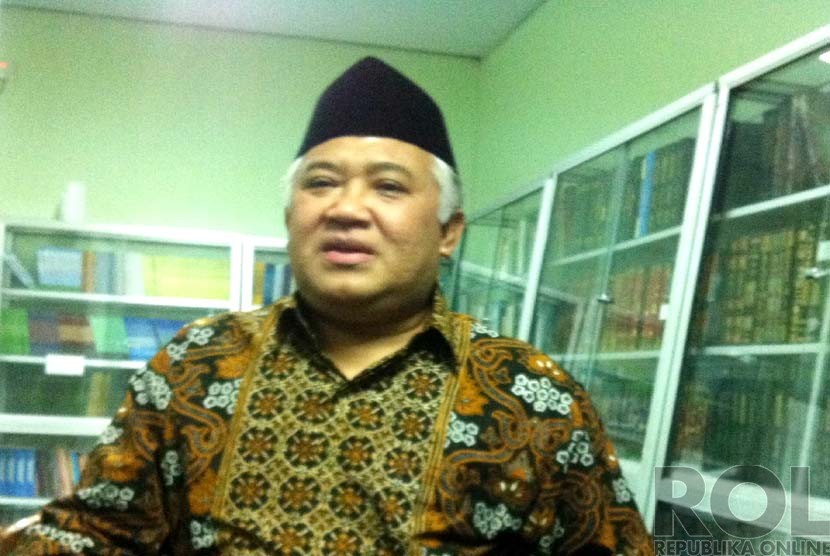REPUBLIKA.CO.ID, MATARAM -- Indonesia's Council of Ulemas (MUI) has appealed to the government to close any access radical movements have to the country, following the recent case of an ISIS video circulating over the Internet.
"If possible, the government should immediately close all loopholes that provide the ISIS entry into the country," General Chairman of the MUI Din Syamsuddin said here on Wednesday.
He added that in the current era of digital technology, it was not impossible for radicalism, such as the one carried out by the Islamic State of Iraq and Syria (ISIS), to make way into the country through the Internet, accessible to the country's population of 250 million.
"Many are certainly interested to enter, and it is possible for them to benefit from such means for the purpose. So it is the government's responsibility to revoke access to ensure that those lured by the ISIS to conduct jihad cannot enter the country," he emphasized.
Syamsuddin further noted that the ISIS movement did not threaten Muslims alone but mankind as well because the actions carried out by its members so far have threatened civilization and the reputation of Islam.
"I think the ISIS is carrying out a radical political movement, not a religious one. However, it has acted in the name of religion and used religion wrongly to destroy the existing state system," he pointed out.
This movement must be fought with a comprehensive program, Syamsuddin remarked, adding that the government and other parties concerned must conduct thorough studies to identify reasons why it began.
As the ISIS is an ideological movement, it must be fought using ideology, he said.
According to Syamsuddin, the government and the community must strengthen the Islamic ideology, which upholds the principle of "rahmatan lilalamin" (peace for the whole world), as well as the nationalist ideology.
"If this is done, the ISIS will have no room to grow in Indonesia," he affirmed.
The MUI general chairman observed that the ISIS had also emerged due to religious teachings that were not understood correctly.
Moreover, he stated that he did not agree with the idea of revoking the citizenship of Indonesians who join the radical group.
"If that is done, it would mean relying on repressive measures that would not help to settle problems because the root of these issues will not be separated," he cautioned.
He also pointed out that besides religious factors, others such as social, economic, political and injustice-related factors also contributed to the dissemination of the ISIS ideology, which is why the movement must be challenged comprehensively through the implementation of an effective strategy.
In keeping with this view, "Religious figures, as well as the government and the state, should adopt comprehensive approaches, including ensuring the improvement of the welfare of the people," he said in response to the movement.


